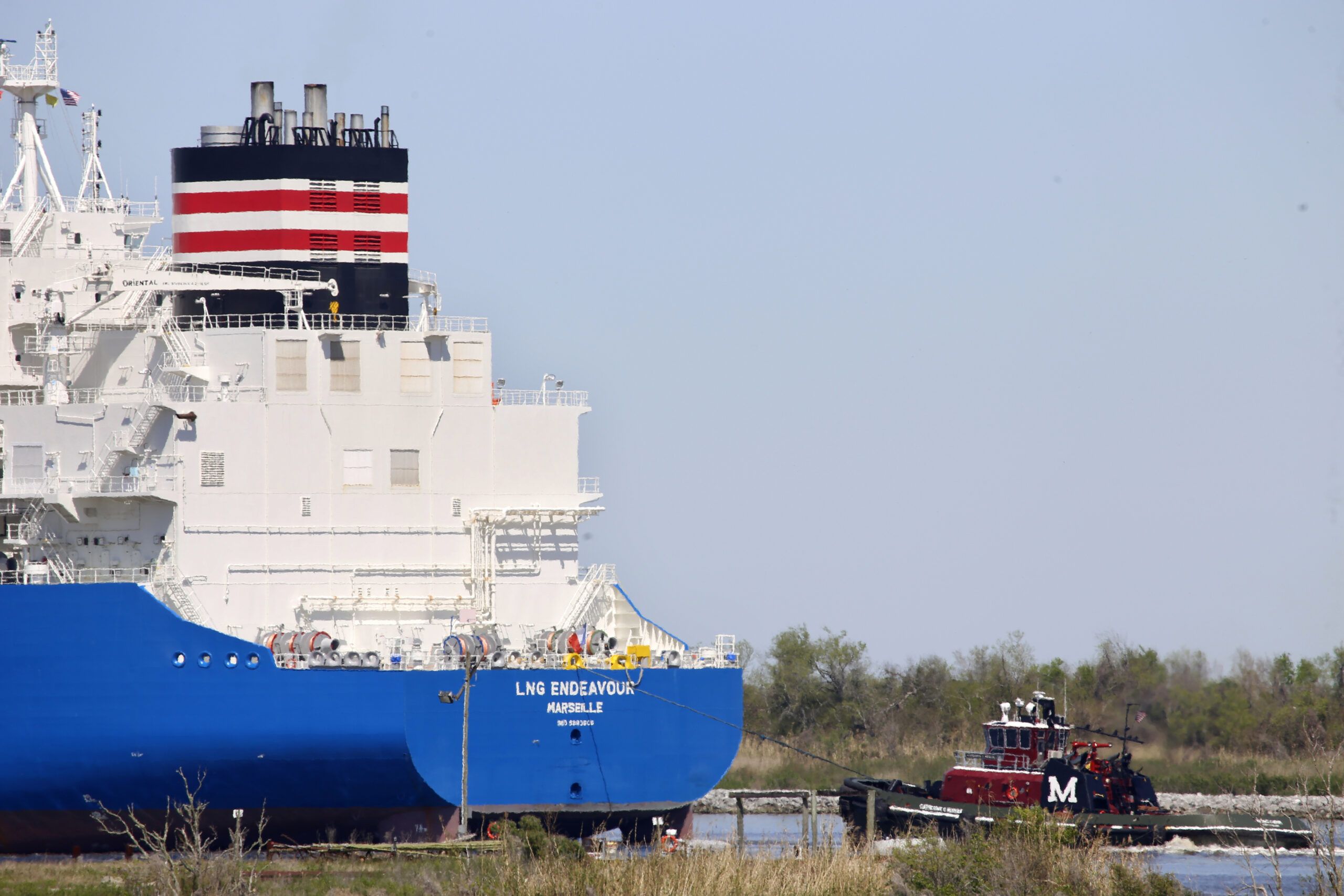

Energy regulators voted Thursday to approve construction of a massive liquified natural gas (LNG) export terminal in Louisiana, paving the way for a larger fight between environmental advocates and fossil fuel groups as the project makes its way to the Energy Department for a final decision.
Members of the three-person Federal Energy Regulatory Commission (FERC) voted 2-1 Thursday to approve the Calcasieu Pass 2 LNG export terminal on Louisiana’s Gulf Coast. The project, though, is still in regulatory limbo because of the Biden administration’s pause on new DOE authorizations for LNG exports.
The $10 billion LNG terminal is owned by Venture Global and is expected to have an expected export capacity of 20 million tons per year—giving the U.S. a major boost as it looks to help the European Union reduce its reliance on Russian fossil fuels.
The company said it has already inked LNG supply deals with buyers in the EU and in Ukraine.
The FERC vote comes as CP2 has also become central to the broader fight over energy policy. The U.S. has risen to become the world’s No. 1 exporter of LNG, with its capacity projected to double by the end of the decade, according to estimates from the Energy Information Administration.
The Energy Department made waves when in January when it announced it would temporarily pause approval of new LNG export terminals, which it said will allow it to consider the environmental and climate effects of the facilities, along with economic and national security considerations.
Democrats had long pushed for the pause, and in November, a group of 60 lawmakers led by Sen. Jeff Merkley (D-OR) urged DOE to update how it determines whether LNG export projects are in the “public interest,” voicing concerns that the current method of approval “does not fully or accurately consider how LNG exports negatively impact the climate, environmental justice communities, or increase domestic energy prices.”
CLICK HERE TO READ MORE FROM THE WASHINGTON EXAMINER
Biden administration officials have indicated the pause will end in the beginning of 2025.






